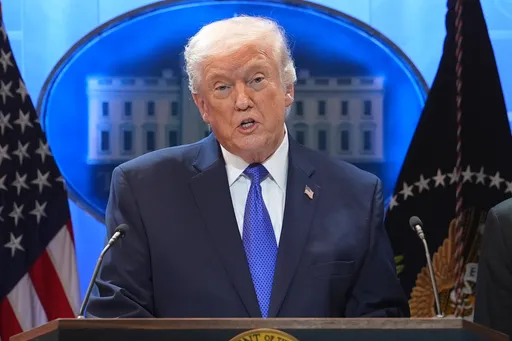Qatari armed forces that had been stationed in Saudi Arabia as part of the Saudi-led coalition fighting the Iran-aligned Houthis in Yemen returned home on Wednesday, state television reported on its Twitter account.
The forces had been stationed in southern Saudi Arabia, the report said, reinforcing Saudi defences against Houthi attacks.
Saudi Arabia, which along with several other Arab countries has severed ties with Qatar after accusing it of supporting terrorism and links to Iran, has said that Doha was being kicked out of the coalition.
The dispute between Qatar and its neighbours was triggered by a purported hack of Qatar's state-run news agency that attributed what Doha said was a "false statement" to the country's emir Tamim bin Hamad al Thani.
The statement, which was later removed, focused on sensitive regional political issues with other nations in the region, including Iran and Israel, and also Doha's relationship with new US President Donald Trump.
Qatar has said the measures taken against it were "unjustified and based on false claims and assumptions" and that it was facing a "campaign of lies that have reached the point of complete fabrication" aimed at putting the state "under guardianship."
Hack confirmed
A preliminary investigation into the incident confirmed that Qatar's state news agency was indeed hacked, the Qatari foreign ministry said on Wednesday.
"The Ministry said the investigation team confirmed that the piracy process had used high techniques and innovative methods by exploiting an electronic gap on the website of the Qatar News Agency," the foreign ministry said in a statement.
It did not say who it might believe carried out the hack.
Qatar's foreign ministry thanked the FBI and the British National Commission for Combating Crime for cooperating in the investigation, without elaborating.
Mediation efforts underway
Kuwait's ruler, Sheikh Sabah al Ahmad al Jaber al Sabah, travelled to the Qatari capital on Wednesday after visiting the United Arab Emirates, which along with Saudi Arabia and Bahrain has severed ties with Qatar.
Sheikh Sabah arrived in Doha as part of a mediation mission to try to heal a rift in the Western-allied Gulf Cooperation Council, Kuwaiti state news agency KUNA reported.
But in some of the strongest comments related to those efforts by a senior Gulf Arab official, Bahrain's Sheikh Khalid bin Ahmed al Khalifa reportedly told the newspaper that it doubted whether Qatar would change its behaviour.
"The emir of Kuwait is a messenger of good, but the policies of Qatar have not granted his endeavours success," Mecca reported Sheikh Khaled as saying on its official Twitter page.
"We will not hesitate to protect our interests and the road is open to any options to protect ourselves from Qatar."
Sheikh Sabah visited Saudi Arabia on Tuesday to try to mend fences, but no details were released on his mission.
Life goes on as normal in Qatar
Only a few days ago, people in Doha wouldn't have imagined their country under blockade by a hostile region. Although the land border with Saudi Arabia is sealed, some air and sea routes are still open.
"There is no shortage in food supplies. Everything is abundantly available," Sabir Abd al Mogdi, an Egyptian construction supervisor working in Doha told TRT World.
"I thought that bread would be scarce at least, but I found a bigger supply than usual. The same for dairy products. Prices are also the same. They haven't been raised."
Energy engineer Ibrahim al Sharif, was optimistic about the outcome of the crisis.
"For Qataris there's no fear. We are certain this crisis will not last for long," he said.
"There are critical concerns that will prevent it from dragging on. The Gulf states are one large family. There isn't anyone in Qatar without family in the Emirates or Bahrain, and vice versa," he added.
TRT World's Iolo Ap Daffyd reports with more from Doha.























